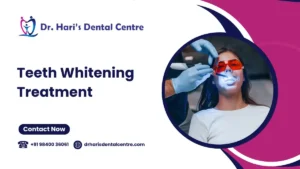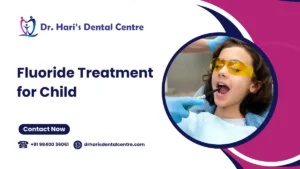When it comes to oral health, baby teeth—also known as primary teeth—often don’t get the attention they deserve. Many parents assume that because these teeth are temporary, they’re not as important as permanent teeth. However, this couldn’t be further from the truth. Primary teeth play a critical role in a child’s development, and proper care sets the foundation for a lifetime of healthy smiles.
The Role of Baby Teeth in Child Development
Primary teeth begin to appear between 6 and 12 months of age and are typically fully replaced by permanent teeth by age 12 or 13. While they’re only around for a short time, baby teeth serve several essential functions:
- Chewing and Nutrition: Baby teeth allow children to chew food properly, which is vital for proper nutrition and digestion. Poor oral health can make chewing painful, leading to dietary issues that affect growth and development.
- Speech Development: Teeth play a key role in speech formation. They help children pronounce words correctly, supporting language development. Missing or damaged teeth can lead to speech difficulties, which may impact confidence and communication skills.
- Space Maintenance for Permanent Teeth: Baby teeth act as placeholders for adult teeth. They guide permanent teeth into their correct positions. If a primary tooth is lost too early due to decay or injury, it can cause misalignment, crowding, or other orthodontic issues later on.
- Facial Structure and Appearance: Healthy primary teeth contribute to the proper development of a child’s jaw and facial structure. They also boost self-esteem by giving children a confident smile.

Why Caring for Baby Teeth Is Crucial
- Preventing Tooth Decay: Tooth decay (cavities) is one of the most common chronic conditions in children. Cavities can cause pain, infections, and difficulty eating or speaking. Untreated decay in baby teeth can also affect the health of permanent teeth developing beneath them.
- Avoiding Pain and Infections: Decayed or damaged baby teeth can lead to painful infections, such as abscesses, which may require invasive treatments. In severe cases, infections can spread to other parts of the body, posing serious health risks.
- Establishing Lifelong Oral Health Habits: Teaching children to care for their baby teeth sets the stage for good oral hygiene habits that last a lifetime. Brushing twice a day, flossing, and visiting the dentist regularly become second nature when introduced early.
How to Care for Baby Teeth
Caring for primary teeth doesn’t have to be complicated. Here are practical tips to keep your child’s smile healthy:
- Start Early: Even before the first tooth appears, clean your baby’s gums with a soft, damp cloth after feedings to remove bacteria and sugars.
- Brush Twice a Day: Once teeth emerge, brush them twice daily with a soft-bristled toothbrush and a rice-grain-sized amount of fluoride toothpaste for children under 3, or a pea-sized amount for children 3 to 6.
- Limit Sugary Foods and Drinks: Sugary snacks, sodas, and juices can contribute to cavities. Offer water or milk instead, and encourage healthy snacks like fruits and vegetables.
- Visit the Dentist Early: Schedule your child’s first dental visit within six months of their first tooth erupting. Regular checkups help catch problems early and familiarize your child with the dentist.
- Use Fluoride: Fluoride strengthens enamel and helps prevent cavities. Ensure your child uses fluoride toothpaste and drinks fluoridated water (if available in your area). Your dentist may recommend fluoride treatments for extra protection.
- Protect Teeth During Activities: If your child plays sports, consider a mouthguard to protect their teeth from injury.
Common Myths About Baby Teeth
- Myth: “Baby teeth don’t need care because they’ll fall out anyway.”
- Fact: Baby teeth are critical for development, and their health impacts permanent teeth.
- Myth: “Cavities in baby teeth don’t matter.”
- Fact: Untreated cavities can cause pain, infections, and damage to developing permanent teeth.
- Myth: “Kids don’t need to see a dentist until they’re older.”
- Fact: Early dental visits are essential for prevention and education.
The Long-Term Impact of Healthy Baby Teeth
Investing time and effort in caring for your child’s primary teeth pays off in the long run. Healthy baby teeth contribute to proper nutrition, clear speech, and a confident smile, all of which support your child’s physical, emotional, and social development. Additionally, good oral health habits established in childhood are more likely to carry into adulthood, reducing the risk of dental problems later in life.
Conclusion
Caring for baby teeth is far more than just maintaining a cute smile—it’s an investment in your child’s overall health and future well-being. Primary teeth play vital roles in eating, speaking, and guiding permanent teeth into place. By prioritizing early dental care, healthy habits, and regular checkups, parents can prevent problems before they start and set the foundation for a lifetime of strong, confident smiles. Remember, healthy baby teeth lead to healthy adult teeth—start good oral care early!




